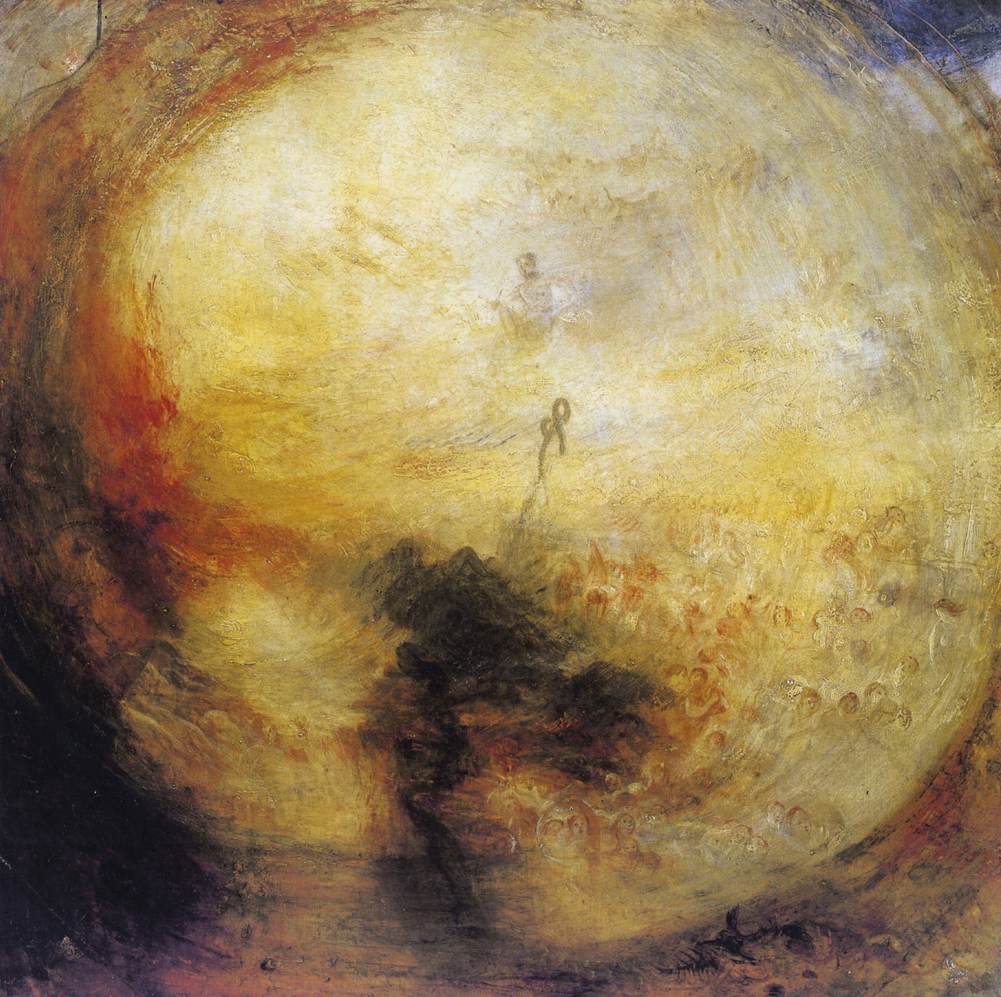Description
"The Morning after the Deluge" is an iconic painting by British artist Joseph Mallord William Turner. Originally 78.5 x 78.5 cm in size, this masterpiece captures the viewer's attention with its unique artistic style, evocative composition, use of color and fascinating story.
Turner's artistic style is characterized by his romantic approach and his ability to capture atmosphere and emotion in his works. In "The Morning after the Deluge," you can appreciate his distinctive technique of loose, rapid brushstrokes, creating a sense of movement and energy on the canvas. This technique also allows him to impressively render light and atmospheric effects, adding an ethereal dimension to the painting.
The composition of the work is another outstanding aspect. Turner divides the canvas into three distinct parts: the sky, the sea, and the land. In the sky, dark stormy clouds can be seen gradually fading into light. The rough and turbulent sea shows the aftermath of a recent flood. On the land, ruins and rubble can be seen, evoking a sense of desolation and destruction.
The use of color in "The Morning after the Deluge" is particularly notable. Turner employs a palette of dark, somber tones in the sky and sea, reinforcing the sense of hopelessness and chaos. However, it also incorporates highlights and lighter colors on top of the canvas, creating a sense of hope and rebirth. This contrasting color combination adds depth and drama to the painting.
The story behind this work is also intriguing. It was painted in 1843, during a period when Turner was fascinated by the theme of the flood and destruction. The inspiration for this painting is believed to have come from the Biblical account of the Great Flood and the catastrophic floods that affected Britain at the time. Turner uses the flood metaphor to explore themes such as the destructive nature of man and the relationship between humanity and nature.
In addition to these well-known aspects of "The Morning after the Deluge", there are lesser-known details that also deserve attention. For example, Turner includes small details in the painting, such as shipwrecks and scattered human figures, which add a touch of realism and drama. These details may go unnoticed at first glance, but closer inspection reveals the skill and care with which Turner approaches each element of the work.
In short, Joseph Mallord William Turner's "The Morning after the Deluge" is a fascinating painting that stands out for its artistic style, evocative composition, use of color, and intriguing story. This masterpiece demonstrates Turner's ability to capture emotion and atmosphere in his paintings, and it remains a highly relevant and interesting piece of art to this day.

